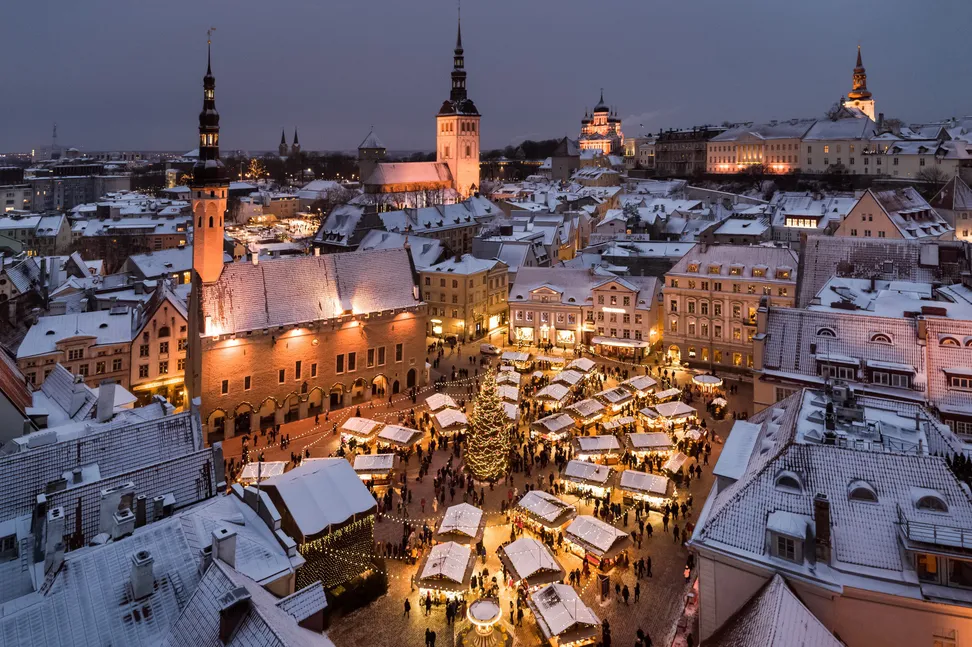Oguz Kaan Kısa · Feb. 3, 2021

The Republic of Estonia, a Baltic state located in Northern Europe, was the first country to leave the Soviet Union and to issue its own money. Estonia is known as the most sparsely populated country in Europe. Half of the country's land is covered with forests. There are more than 1500 islands in the country. With 133 thousand recorded folk songs, Estonia is the country with the world's largest folk song collection.
A large part of the country, which has the highest internet download speed in the world with an average speed of 40.81 mbit / s, has free wifi applications for the public. Everything from tax returns to elections in the country is carried out online and electronically. In the country where all activities are carried out by electronic system, the government and the parliament have not used paper since 2000. Since 2007, Estonian voters have been voting online, from any corner of the world. Computer and programming lessons are given to children from the age of 7 in schools. Estonia is the only country in the constitution that says "Internet is a citizenship right that must be met for free".
In Estonia, it is a law to install safety reflectors, whether walking at night, cycling or when visibility is poor. The reflector can be fixed on your handbag, jacket or any other suitable place where it can be easily seen. Otherwise, you may be fined up to 400 Euros.
Estonia also belongs to the group of countries with the largest concentration of predators in Europe. If you're lucky enough, you can see wolves, lynxes, and brown bears in the country.
They host a wife-carrying contest each year. Many European countries are participating in this event. Male competitors must carry their female partners and pass the hurdles track as soon as possible.
Estonia, which completed its membership negotiations and became a full member of the EU in 2002, is one of the countries benefiting from the blessings of this membership. However, this contribution is not just because of the small population, of course, Estonia is a country that teaches computer programming to its children from the first grade of primary school.
If you visit the country during the winter months, you may also have the chance to travel on icy roads. Ice roads form between the mainland and the islands with the freezing of the Baltic Sea in winter.
Estonia is a very suitable country for summer tourism. The white beaches in Parnu attract attention. There are also different places to visit in Parnu such as wooden villas, the Museum of Modern Art, Seegi Maja. The Old Town Square of the capital Tallinn, where medieval buildings have been fully preserved, is on the UNESCO World Heritage List. The square, which is worth seeing with Toompea Hill and its historical houses, maintains its liveliness at night. Other must-see places in the country include Soomaa National Park, Lahemaa National Park, Vortsjarv Lake, Matsalu National Park, Vilsandi National Park, Saadjarv Ice Age Center, Viru Gate, St. Olaf Church, Kök in Kiek, Kadriorg Palace, Alexander Nevsky Cathedral, Toompea Castle.
Cafe culture is very popular in the country. There are cafes in almost every corner and streets of the country. The cafes in the country are small, comfortable and give their customers a home feeling. Estonia has one of the highest cell phone ownership rates per capita. You can pay for almost anything with a mobile phone. There is also free Wi-Fi throughout the country.
Although Estonia is home to a variety of well preserved religious sites, local people are not very religious themselves. Only %16 of Estonians say that they are religious. The religious population is Christians, mostly Orthodox Christians and Lutheran Christians. According to Ringo Ringvee, "religion has never played an important role on the political or ideological battlefield" and "the prevailing tendencies for close relations between the state and the Luteran church in the late 1930s ended with the Soviet occupation in 1940". It has also been stated that "the chain of religious traditions broke in most families" due to the state atheism of Soviet policy. Before World War II, about 80% of Estonian people were Protestants.

 Back
BackLet us find your dream university.
